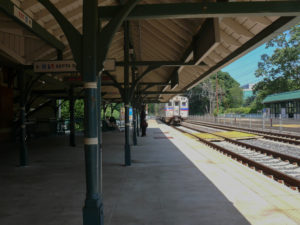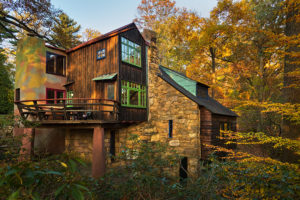2021: A Unique Year to Buy a Home
2020 was undeniably a very strange year. While we all faced new and unique challenges, many of these challenges centered on the home. As a result, 2020 spurred many to reconsider where and how they live. In some cases, 2020 even inspired people to sell or buy a home. With 2021 now beginning, many believe that more people will ask these questions as they enter 2021.
Furthermore, while 2020 attracted many people to the real estate market, many have also faced increased anxiety. 2020 was a hard year for many of us, and traditionally, many think of homebuying as hard. It is understandable then that some may feel reluctant to make such a big change after a year like 2020. However, because 2020 inspired so many people to reconsider the home, it also inspired many to reconsider the home-buying process. Traditionally, the process of buying a home has been a rewarding, but stressful process. While the internet and social media has made it easier than ever for Americans to search and browse houses on the market across the country, any experienced homeowner will tell you that finding the perfect house---or the perfect neighborhood, is only the first step in the journey.
How 2020 Changed The Way We Think About 'The Home'
 During 2020 many families struggled to find ways to connect safely. While many families feel comfortable living further apart, knowing they will come together at the holidays, 2020 disrupted many of these plans. Because of this, 2020 was the first holiday season many spent alone. At the other end of the spectrum, 2020 forced many families to live much closer than they are comfortable with. With so many vulnerable to the effects of Covid-19, either in terms of their personal health or finances, many Americans invited relatives to 'weather the storm' in the safety of their family homes.
During 2020 many families struggled to find ways to connect safely. While many families feel comfortable living further apart, knowing they will come together at the holidays, 2020 disrupted many of these plans. Because of this, 2020 was the first holiday season many spent alone. At the other end of the spectrum, 2020 forced many families to live much closer than they are comfortable with. With so many vulnerable to the effects of Covid-19, either in terms of their personal health or finances, many Americans invited relatives to 'weather the storm' in the safety of their family homes.
However, 2020 also challenged not just where or who we live with, but how we use the spaces that we live in.
With many offices and schools switching to an online model in response to Covid-19 concerns, many Americans spent more time in the home---or the home of a family member---in 2020 than they ever had before. Because of these changes, many Americans to reconsider their relationship to the home, and the relationship that their family has to the home. As a result, it is expected that these changing perspectives will be reflected in the real estate decisions Americans make for years to come.
2021: Closer, But Not Too Close!

Although 2020 has changed many things, it is unlikely to change the foundation of the home in the American family, the home.
While 2020 brought many new and unique challenges, more Americans than ever found themselves facing them in the home. With the home taking on the backdrop for so many events and struggles for so many in 2020, it would be impossible to pretend that our relationship to the home has not changed as well.
With so many more people working and studying from home, for example, many people spent more time in their homes in 2020 than ever before. This increase in the amount of time in the home gives way to an increased familiarity with the role the home plays in our lives, including the struggles the home can either shield us from or intensify.
For example, with fewer Americans traveling in 2020 families who once were comfortable living further apart---especially from older relatives---may seek to live closer in the future.
Similarly, families who were brought together by the 2020 pandemic may consider forms of expansion or increased at-home privacy to both maintain the closeness they’ve grown accustomed to, but to also make such closeness as comfortable and uninterrupted as they can.
In such cases, many families are now considering the benefits of intergenerational living
Finally, outside of household preferences, 2020 has seen a return of suburban excitement. While urban areas and apartment living can offer many exciting opportunities and communal recreation, the spread of covid-19 has increased the value of distance and privacy for many Americans. While less-than-ideal public restrooms and crowded public transportation have always been realities of city living, after the 2020 covid-19 virus it is likely that these aspects of living in an urban environment will become much greater turn-offs for some Americans than they had been previously.
Benefits of Home-buying, 2021

Outside of personal preference of course, there are many benefits to buying a home. For example, like any piece of property a house can appreciate over time and with the right market turn a down-payment of $30,000 into a financial investment of $9,000 annually.
The best part of homeowning is, unlike with rentals, the growth of the market does not affect yearly expenses. While a landlord may choose to raise rent in a hot neighborhood, interest in a homeowner's neighborhood only raises expected value---not costs. Because mortgages are fixed rates, homeowners do not have to worry about any unexpected rises in their mortgage rate. This means that positive changes to the neighborhood, more businesses, more interest in the area, will always result in positive changes for the homeowners---such as a higher appraisal value and thus a greater profit from the initial investment.
How to Overcome the Challenges of 2020 in 2021

However, after a year like 2020 it is understandable that some Americans may be more risk-averse than they usually are. 2020 brought many changes and struggles for all of us, and while buying a home can bring many benefits---doing so can also raise concerns for many, and after a year like 2020 some may feel that they lack the confidence to undertake the challenges that they associate with investing in a home.
The Fears of Traditional Home Buying
 When buying a home for the first time many Americans struggle with concerns over paperwork, home loans, and price negotiation. Many also worry about the always-dreadful ‘buyers remorse’. Buying a home is a big decision, and a very personal one. Just as no two houses are the same, no two people are the same either.
When buying a home for the first time many Americans struggle with concerns over paperwork, home loans, and price negotiation. Many also worry about the always-dreadful ‘buyers remorse’. Buying a home is a big decision, and a very personal one. Just as no two houses are the same, no two people are the same either.
With that, the various paperwork and legal procedures that must be undergone to purchase a home can quickly become daunting, as traditionally buyers have had to adapt to a changing rotary of people and professionals to consult. Thankfully, just as times change so does the manner by which people buy and sell houses. Chris Napoli CRE Mainline understands the typical stressors and worries that are associated with buying a home, and helps buyers manage them with their unique concierge service.
2021: The Future of Home Buying
Unlike other traditional real estate agencies, Chris Napoli CRE Mainline promises to reduce the amount of people that buyers will have to keep in contact with or manage, without having to sacrifice the useful services and assistance that these professionals provide. Homebuying used to provide people with two options, to navigate the terms and conditions alone, or to juggle multiple people and teams to do the work for them.
With Chris Napoli CRE Mainline buyers no longer have to make such a decision between a rock and a hard place. Thanks to the unique concierge service that Chris Napoli CRE Mainline provides, buyers are matched with a single all-in-one real estate agent.
This agent then stays with the homebuyers throughout the entirety of the process, making homebuying easy and simple. In doing so, the amount of work and stress required of the buyer is significantly reduced, as buyers only have one point of contact to manage. By focusing on the strength of the relationship between the buyer and the agent, CRE builds the confidence that their buyers have in their agents.
From this buyers can be comfortable and confident that their agent will secure their homebuying responsibilities. From providing them with information, assisting in the selection process, and guiding them through negotiations. In doing so, CRE Mainline provides a homebuying experience that is both unique and flexible, providing homebuyers a change of pace that is nothing but relief after a year like 2020.
No properties found.
No properties found.








